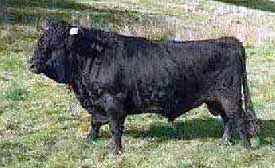
Husbandry
The people of Porter's Bar do not keep a lot of live stock. There are a few cattle, imported by Canon Dexter, fairly early on in Porter's Bar history which are kept as draft animals and to provide milk. Small by most standards, two of Dexter's cows, are generally required to pull a plough or small cart effectively.
Few bulls are kept - cows, which are milked at the start of the day, do the draft work as well. Unwanted male calves are slaughtered for their meat early on, as are cows at the end of their milking life. The meat from the young bulls is sweet and tender, and often finds its way to the tables of the wealthy as a roast, although the meat of the older cattle is tougher and stringy and rarely used alone, but may be mixed in with other meats.
The locals have also domesticated a local breed of duck, which they keep primarily for its eggs. Fairly nondescript, after years of cross breeding, the Porter's Bar duck, lays eggs that are about the same size as a standard chicken's egg, but which have a light blue/green shell. Generally they are taken as meat at the end of their laying lives, but on special occasions one will be slaughtered young and roast as a center piece for a meal.
------------
Notes
| Dexter's Cattle are one of the smallest breeds of cattle in Allium. They are dual-purpose animals producing quality milk, and being suitable for light draft work, although the meat is considered to be poor quality and stringy. They are very small cattle with a broad, deep torso, short legs with noticeably angled back legs and heavily muscled hind quarters. Cows mature to 650-700 lbs. and 36-42 inches high at the shoulder. Bulls mature to 800-900 lbs. and 38-44 inches high at the shoulder. They usually are black but can be dun (a reddish brown shade). |
|